- Home
- Tim LaHaye
02 Thunder of Heaven: A Joshua Jordan Novel Page 16
02 Thunder of Heaven: A Joshua Jordan Novel Read online
Page 16
She sipped her drink, and he laughed.
He wanted to know more about the United States. “Jessica Tulrude. We still need her …”
“Of course …”
“I have pledged many millions to her presidential campaign.”
“She will be an important component, but we are concerned about President Corland.”
“His health is failing,” Demas said, dismissing Corland with a wave of his hand. “He’s a dead man walking. I don’t know why he hangs on. There is some conversation about his having a change of heart. In any case, it’s good that he won’t last. We can’t do business with Corland, now that he’s gotten religion. But Jessica Tulrude we can deal with. She still thinks she is going to have a dominant role in the coming global coalition. I have been working her from my end. She’s salivating to expand her power, not satisfied to be just the American president. She wants to be historic … the first U.S. head of a world government. Behind the scenes, I’ve promised her that.”
Portleva wondered, “After the great unpleasantness happens in the United States — irradiated populations, leveled cities — won’t she be forced by her own political party and her own people to fight back, clawing and scratching like a caged animal against the aggressors?”
“By then, the United States will be so weakened, so declawed, that it will be worried about survival, not dominance. Tulrude will be at our mercy. I can play her, believe me. Besides, I think you have done a good job of hiding the identity of their true enemies. The only ones the Americans will be able to identify will be a handful of dead Islamic martyrs.”
“And the American media? What will happen there?”
Demas had already calculated that. “Remember 9/11. The American press bent over backward not to be condemning. Editors told their staffs not to use the phrase Islamic terrorist. There’s a sizable connection between Russia and the United States. Many folks from Russia and the Baltic republics live in America. The U.S. would not want to be politically incorrect toward Russians, now would they? The same 9/11 media backlash will happen again, but perhaps even more so now. Why, some of the media people may even intimate that it was American foreign policy that caused the attacks against them.”
That was a wonderful thought, and Portleva laughed. She reached over to grip his hand. “I think we are going to work well together.”
Then she raised her glass. He followed suit. She said, “Here’s to what is coming … the setting of the sun for America’s arrogance. And the bright sunrise for the new world order.”
Gallagher convinced Ken Leary, which was a major task in itself. What had finally turned Leary’s head is when Gallagher mentioned one name that, as it turned out, they both knew in common: Pack McHenry. “He’s the source,” Gallagher explained, “of all my information.”
They knew that McHenry was doing “way out there” surveillance for the CIA, along with his Patriot group, strictly as a black-ops subcontractor. Much of their work had tendrils into the American homeland, but always with international implications and usually because they had located a foreign source of aggression that directly threatened American citizens. Was it legal? Not if Jessica Tulrude and her ilk had their way. But the FBI had been gutted by politics and hog-tied by insane regulations, many of them now the result of international treaties that the United States had been roped into.
Leary was now so concerned that he even violated one of the big commandments: he took his CIA laptop home. He knew he could be fired for that, but what did that matter in the face of this threat?
Gallagher and Leary ordered Chinese food and worked late into the night in Leary’s apartment along the James River on the Shockoe Slip.
Leary said, “Look, all I have is the suspicious names on inbound and outbound flights at Richmond International Airport. That’s all, John. They won’t grant me even a look-see at any of the bigger airports. I’ve been cordoned off from the rest of the Agency.”
They ran down the thousands of names on Leary’s computer. About 3:00 in the morning, they had narrowed the list to three names that fit Gallagher’s profile of Russian, North Korea, or Iranian involvement. One was a South Korean journalist with possible sympathies to China. He had flown into the U.S. three months before to cover some political news in Washington. But he had left the country for Venezuela.
The second was an Iranian diplomat suspected of spying for Tehran, but it couldn’t be proven. He had an apartment near Embassy Row in Washington.
Gallagher squinted at the last name. He stuck his finger on the laptop screen. “Who’s that?”
“Russian engineer. Taught at a technical institute over there. Now he’s a visiting professor here. Supposedly.”
“Is that his last name?”
“Right,” Leary said.
Gallagher said the name slowly. “K-o-r-s-t-i-k-o-f-f …” Then he asked, “What kind of engineering?”
Leary typed a search into his computer, then another. After about forty minutes, he started nodding his head. Then he nodded more vigorously.
“Okay, what’s the scoop?” Gallagher asked.
“It says here he also spent time disarming old Soviet nuclear missiles so they could comply with the nonproliferation treaties.”
Gallagher stood up straight. “I say we start working this guy Korstikoff — and I mean right now.”
Leary was tired. “How about a few hours of shut-eye?”
“You go ahead. I saw an all-night coffee shop down the street. I’ll grab a triple espresso. No time for sleep. I got work to do.” “Like what?”
“Superhero type stuff … you wouldn’t understand …”
THIRTY-NINE
Cairo, Egypt
Atta Zimler watched the ceiling fan in the little gem shop. He was killing time while waiting for Donkor, the diamond dealer. Donkor was in the back room examining three of the diamonds that Zimler had brought with him. Zimler noticed that the fan was wobbling slightly off-balance.
Donkor reappeared through the faded curtain and swept around to the other side of the counter. He laid a soft cloth on the counter with the three diamonds.
“Do you want to know how to fix that ceiling fan?” Zimler asked, pointing up.
Donkor rolled his eyes and shook his head.
“Just get a clothespin. Do you have one? I will show you.”
“Atta, you know something? You’re always trying to remind people how smart you are … I mean … smarter than they are.” The words came out too fast. The gem dealer swallowed.
Atta leaned forward, a little too close, and Donkor took a step back.
“Was that meant to be funny? I’m sure you meant it as a joke.”
Donkor struggled to flash a quick smile, but his lips, suddenly dry, stuck together. “Of course. You know me. Always joking.”
Zimler said, “I want to talk business, Donkor. What will you pay me for all these diamonds?”
Donkor swallowed again. He shrugged. “One million … Egyptian pounds.”
“I said I wanted to talk business. No more of your stupid jokes.”
“Atta, I’m sorry, but that is all that I can pay for these …”
The offer was only a third of what Zimler was expecting, but cash was drying up. Things had become complicated. He could make a clean exit from Dubai with the diamonds, with no trail behind. But the pretty girl at the bank window at the Desert Palm Bank gave him an idea. He had wrangled a dinner date with her. Then another, this time on his rented yacht. Zimler had figured she knew the bank codes so he could get to the bearer bonds he knew would be stored there. But she didn’t have the codes. And even under torture, he couldn’t get what he was after. So he ended up killing her and dumping the body.
It turned out that the Dubai police were quicker to investigate a missing bank teller than he had anticipated. Once more he was on the run. Now he was forced to return to this jewel fence he had worked with for years. A small-time dealer but sufficiently black market and extremely well-connected in the Mi
ddle East.
Donkor stood there, shifting on his feet. He erratically reached out to sweep some dust off one of the shelves behind him. Then he brushed his hands and cleared his throat.
“I don’t think you understand the market for these diamonds,” Zimler said in a casual tone.
“Oh, no, but I do,” Donkor replied. “Diamond market is very different now. All of this blood-diamond fuss. Dealers can’t afford to just buy and sell. Now there is a big problem because of conflict gems. People want to know where you got them.”
“You’re not the only dealer …”
“Any dealer will tell you the same. Really, Atta, I’m telling you the truth. And in Zimbabwe, Côte d’Ivoire, places like that, it’s even worse.”
Zimler smiled playfully and took a step back, thrusting his hands in his pockets. He was fishing. “Okay, so you tell me why I ought to take your lowball price, you scoundrel.”
Donkor grinned and loosened up. “Because I’m telling you the truth, my friend. Look, I’m willing to buy the diamonds. You need the money. Let’s call it a deal …”
That was what Zimler was waiting for. He leaned forward on the counter and picked up one of the diamonds. He then set it apart from the others. “How about this one …”
Donkor leaned toward the counter to inspect it. That is when Zimler struck. His right hand flashed out toward Donkor’s throat and gripped it. The gem dealer gagged and struggled to breathe as Zimler’s powerful fingers closed slowly like an industrial press.
Just when Donkor thought he would pass out, Zimler eased up, but only slightly, keeping his fingers locked around his throat.
“Why do you say I ‘need’ the money?”
The diamond dealer was coughing and gagging. When he could finally speak, he simply said, “Didn’t mean anything by it.”
“I don’t believe you …”
“I know … you … can kill me … very strong … but please don’t …”
“Why did you say that? Tell me, and I won’t kill you …”
“Just something I heard — ”
“What?”
“You had some kind of problem … in Dubai — ”
“What else?”
“I don’t remember …”
He squeezed a little tighter. “What else?”
“Just the Caesar Demas thing.”
“What about it?”
“He didn’t pay you for some job in the States.”
“What else?”
“That’s all.”
He was now satisfied that Donkor knew enough to be valuable. He released his grip. “I’m removing my hand now. Don’t you move. Just stand there.”
Donkor did as he was told, rubbing his neck and panting for air. Then he said meekly, “Atta, I want to do business with you. But not like this. Let’s deal with each other, please, like businessmen.”
“Is this your final offer?”
Donkor rotated his head a little back and forth and massaged his neck. He was thinking. Then he said, “In cash, yes. I can pay with Egyptian pounds, or euros, or the new international CReDO. Anything you want.”
Zimler countered. “How about other than cash?”
“What do you mean?”
Zimler was feeling pressed. The Dubai thing hadn’t worked according to plan, and he still had several law-enforcement agencies looking for him as a result of the Grand Central Station fiasco. Things were closing in on him. Cash was good to have, but information might be just as good. Maybe better. “You are a man with information, Donkor. How about your cash offer, plus some information I can use. But it better be good.”
Donkor shrugged and gave it a few moments of thought. Then his face lit up. “Well, I just might have some information.”
“Tell me.” Zimler was expecting to get something about the local cops being alerted to his presence in Cairo or Interpol agents nosing around. But what he heard was something different altogether.
“Well,” Donkor said, “that American guy is not far from here right now. He’s up in Israel, supposedly. Don’t know why. Just that he is meeting with the Israelis.”
Zimler looked into Donkor’s eyes. He stared him down. “What American guy?”
“You know,” Donkor said cautiously, “the guy you were chasing down on the Demas job. The American …”
“Joshua Jordan?”
“Yeah. That’s him.”
Zimler’s mind lit up like a kaleidoscope. A whole spectrum of possibilities lay before him.
“Donkor, do you think you can get some more information on Jordan? Where he is right now?”
Donkor nodded. “I think so, maybe. Yes. So, do we have a deal? For the diamonds?”
Atta Zimler smiled and held out his hand to shake. “Of course. It’s a pleasure doing business with you.”
FORTY
At Hawk’s Nest, Abigail Jordan was sitting with Victoria, Pack McHenry’s wife, on the big wraparound porch. The perfectly quaffed platinum blonde in her late fifties said she was flying through Denver on the way to Los Angeles. She had an urgent message that she needed to deliver to Abigail in person, something from her husband Pack that had surfaced just after their recent visit together in Washington.
Abigail had brought out some tea, but neither was drinking it yet.
Abigail and Victoria had hit it off fabulously in D.C. when they had brunch together. Though Victoria never said it out loud, Abigail had assumed that she had experience in the clandestine services herself, just like her husband. It was implied in the way she talked — her knowledge of national security issues and the “agency” lingo she used so proficiently. Just a hunch. But Abigail was sure she was right.
Victoria asked, “You’re running things in the Roundtable for the time being?”
“Until Josh gets back.”
“Pack speaks very highly of you, and of Josh too.”
“Funny. Josh thinks the same about you and Pack. It’s too bad our talks are always so crisis driven. So little time for real conversation. That’s why I enjoyed our lunch together.”
When Victoria spoke next, there was regret in her voice, “Well, Abby I’m afraid we need to get down to brass tacks.”
“I understand. So, speaking of crises, you said you had a message?”
Victoria’s expression changed. It was all business. “Here it is. Pack says the most recent intel — and I am talking within the last twelve hours — is that we now know the targets and the general staging areas.”
Abigail felt a nervous fluttering in her stomach. “For the attacks?”
“Yes. Pack has filtered this information down the line to the right people in the federal agencies, but he wants to scream bloody murder because no one is listening, or if they are, then their hands are tied.” Victoria paused before she delivered her caveat. “This information is arguably classified. I emphasize arguably. Do you want to hear it? You know the repercussions.”
“I know the consequences if we do nothing. Josh and I don’t believe in sitting on the sidelines. So tell me what you can.”
“The targets are New York and Washington, D.C. The staging areas are lower New York State, or possibly New Jersey, and Virginia, respectively. The nuclear devices are small enough to be transported by a medium-sized truck, much smaller than a semi. And we’re just a matter of days away. Pack is over in Paris right now, coordinating this information. He’s getting this from one of the Russian republics. So that’s what I know. What can your people do?”
“John Gallagher, a former special agent for the FBI, is out on his own right now trying to turn up leads. We couldn’t get a consensus from the Roundtable for any specific funding.”
“Did Pack’s budget summary come through?”
“It did, and I sent it immediately to each member of the group. Josh and I are willing to put up some money. Beverly Rose Cortez has personally pledged a boatload. But everybody’s jittery. The Department of Justice is looking into our operations … you know what that means.”
&nbs
p; Victoria gave a look that let Abigail know they were on the same track. Victoria pushed her teacup away. “Before I go, I’ll give you the account information and routing numbers to wire the money. Pack has lined up men, equipment, as much as he can, you know, to try to interdict these mass murderers, just in case the Feds really do stand down on this. But this whole operation is off ledger. So it has to be privately funded.” Then Victoria added, “And one more piece of data. According to Pack, the Russians said that the staging site for the Washington attack was — and this is a direct quote from surveillance — ‘a blast from the past,’ whatever that means.”
Abigail leaned back in her chair. She took a deep breath. This was no time for hand-wringing. Action needed to be taken. She said, “I’m going to contact John Gallagher immediately and give him this information. This is frightening, like a bad dream … We’ve got to stop this horror from happening, but everybody, everything is moving in slow motion.”
“Do you have any family in D.C. or New York? You may want to get them out right now.”
“No, thank goodness. We have a penthouse. No one’s there. But … oh no, our housekeeper’s still in New York. I’ll need to find a reason to get her out of town. Cal is here with me and has a few more days before classes start up. And Deborah should be back at West Point by now …” Abigail knew she was missing something in her thinking about her daughter, but she kept talking. “How close is West Point to D.C.? Dear Lord, it’s only about forty miles. I have to get her out immediately.”
“We have a condo in Manhattan too. I’m out of town now until we find out what’s happening. And Pack of course is over in France …”
Abigail looked off to the mountains and drifted away for a second. Then she said, “You and Pack must spend a lot of time apart.”
“Part of the deal, I guess. It gets a little easier with time. But it’s never really easy. You try to manage, try not to become strangers; you work at loving each other, to keep it together. And the pressure, of course, of what he does …”

 Glorious Appearing: The End of Days
Glorious Appearing: The End of Days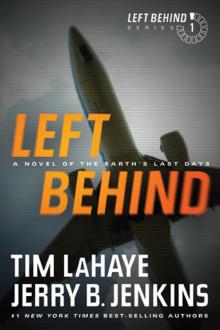 Left Behind: A Novel of the Earth's Last Days
Left Behind: A Novel of the Earth's Last Days Kingdom Come: The Final Victory
Kingdom Come: The Final Victory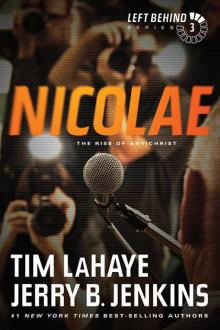 Nicolae: The Rise of Antichrist
Nicolae: The Rise of Antichrist Desecration: Antichrist Takes the Throne
Desecration: Antichrist Takes the Throne Mark's Story: The Gospel According to Peter
Mark's Story: The Gospel According to Peter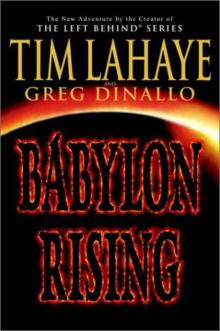 Babylon Rising
Babylon Rising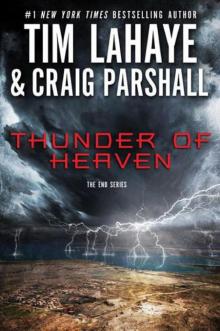 Thunder of Heaven: A Joshua Jordan Novel
Thunder of Heaven: A Joshua Jordan Novel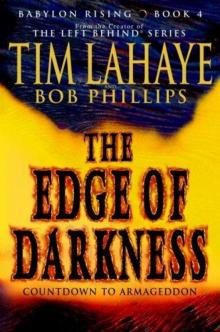 The Edge of Darkness
The Edge of Darkness Apollyon: The Destroyer Is Unleashed
Apollyon: The Destroyer Is Unleashed Armageddon: The Cosmic Battle of the Ages
Armageddon: The Cosmic Battle of the Ages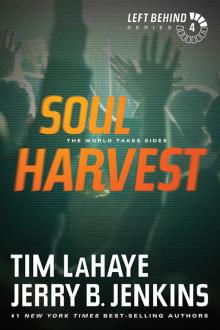 Soul Harvest: The World Takes Sides
Soul Harvest: The World Takes Sides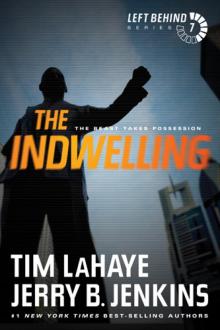 The Indwelling: The Beast Takes Possession
The Indwelling: The Beast Takes Possession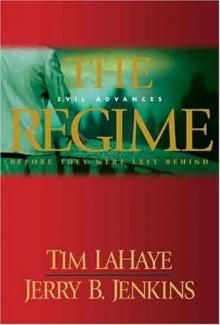 The Regime: Evil Advances
The Regime: Evil Advances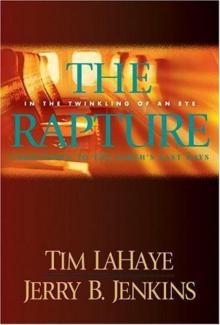 The Rapture: In the Twinkling of an Eye / Countdown to the Earth's Last Days
The Rapture: In the Twinkling of an Eye / Countdown to the Earth's Last Days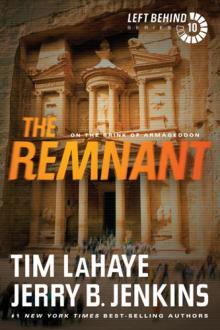 The Remnant: On the Brink of Armageddon
The Remnant: On the Brink of Armageddon John's Story: The Last Eyewitness
John's Story: The Last Eyewitness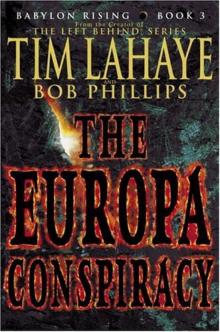 The Europa Conspiracy
The Europa Conspiracy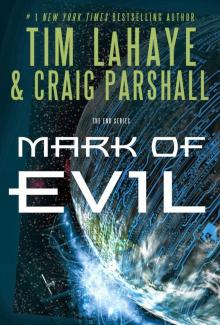 Mark of Evil
Mark of Evil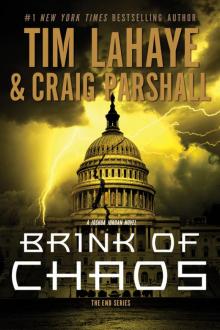 Brink of Chaos
Brink of Chaos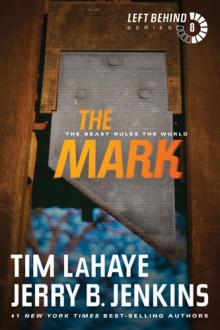 The Mark: The Beast Rules the World
The Mark: The Beast Rules the World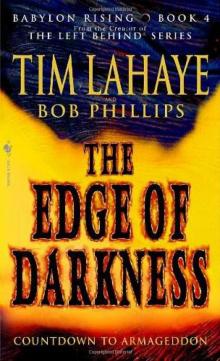 04 The Edge of Darkness
04 The Edge of Darkness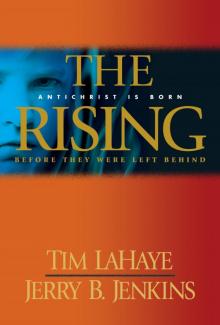 The Rising: Antichrist is Born / Before They Were Left Behind
The Rising: Antichrist is Born / Before They Were Left Behind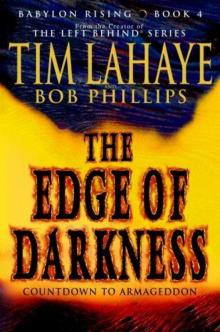 Babylon Rising: The Edge of Darkness
Babylon Rising: The Edge of Darkness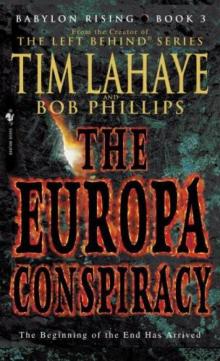 03 The Europa Conspiracy
03 The Europa Conspiracy Desecration
Desecration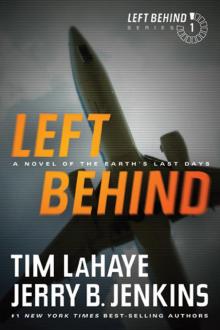 Left Behind
Left Behind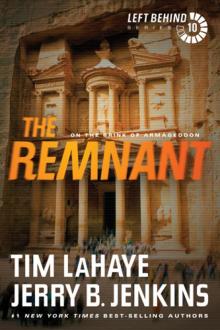 The Remnant
The Remnant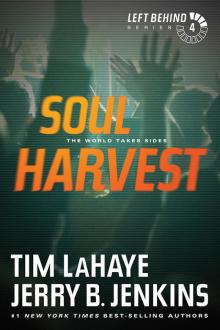 Soul Harvest
Soul Harvest Left Behind Book 13: Kingdom Come The Final Victory
Left Behind Book 13: Kingdom Come The Final Victory Apollyon
Apollyon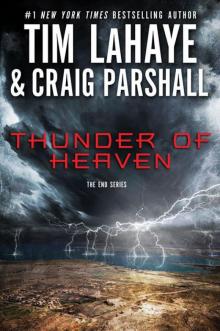 02 Thunder of Heaven: A Joshua Jordan Novel
02 Thunder of Heaven: A Joshua Jordan Novel Glorious Appearing
Glorious Appearing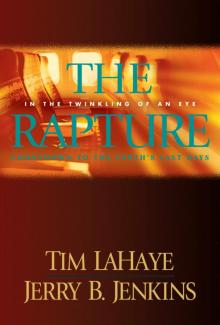 The Rapture: Evil Advances / Before They Were Left Behind
The Rapture: Evil Advances / Before They Were Left Behind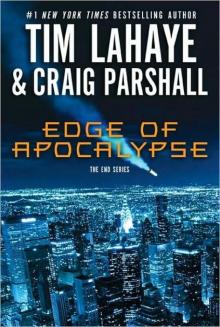 Edge of Apocalypse
Edge of Apocalypse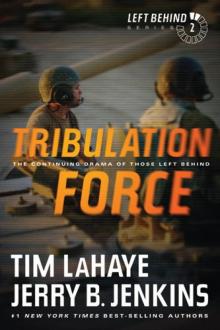 Tribulation Force
Tribulation Force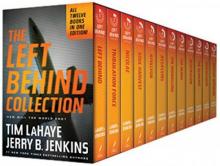 The Left Behind Collection: All 12 Books
The Left Behind Collection: All 12 Books Black Friday
Black Friday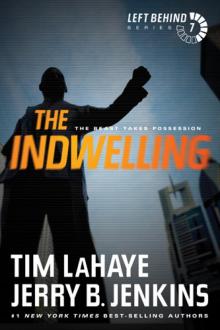 The Indwelling
The Indwelling The Left Behind Collection
The Left Behind Collection